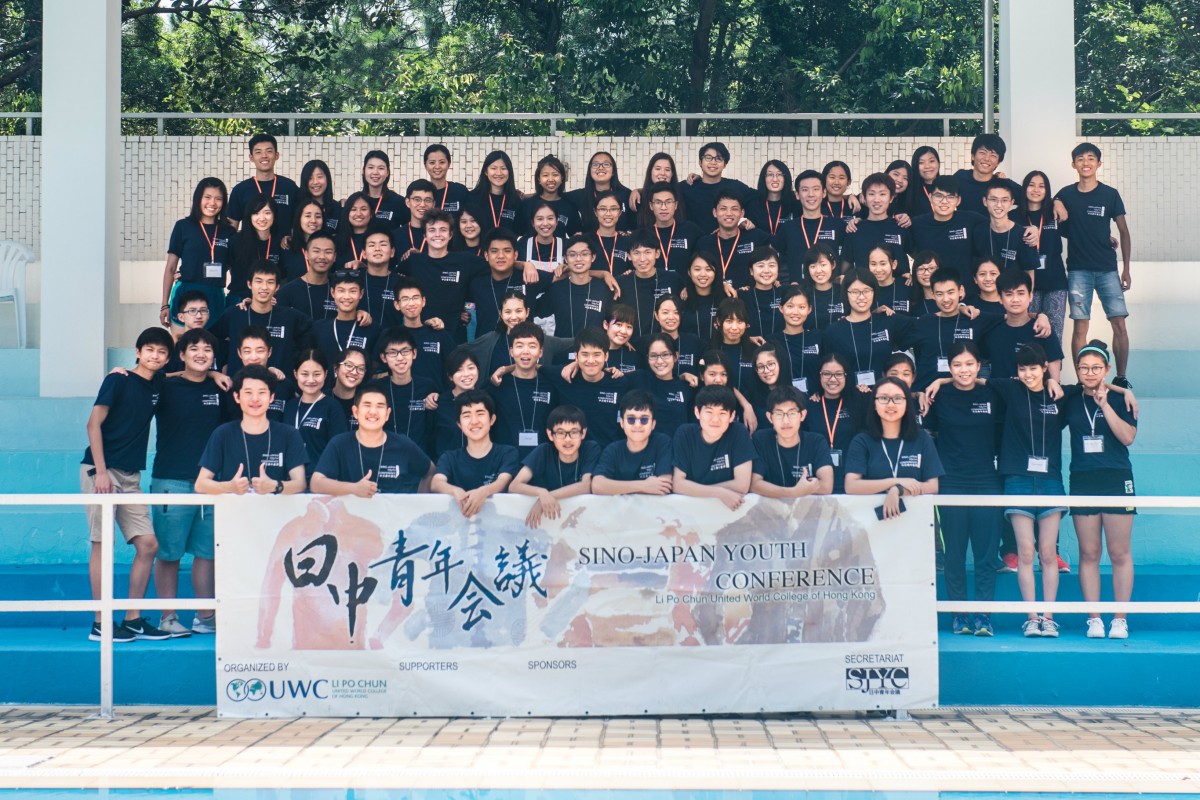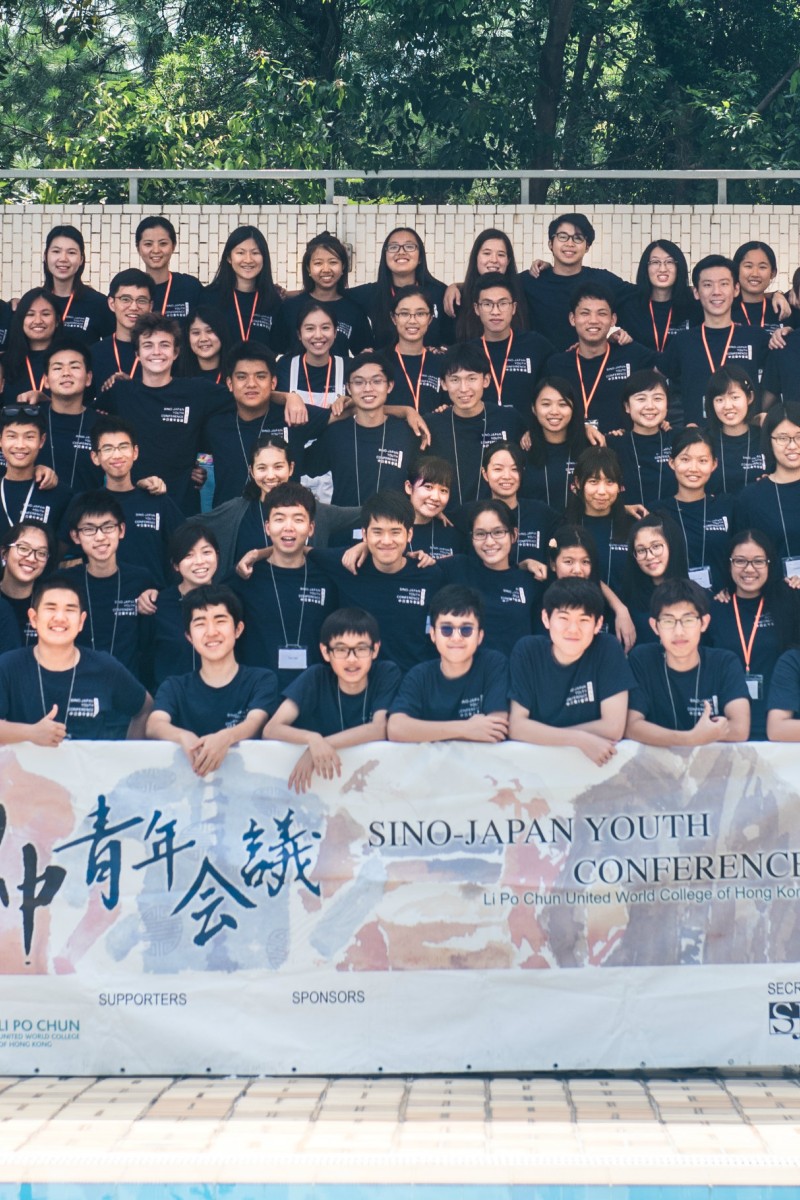
 Peace and diversity are the name of the game at the Sino-Japan Youth Conference.
Peace and diversity are the name of the game at the Sino-Japan Youth Conference. Teenagers from China, Hong Kong and Japan gathered in the city’s Li Po Chun United World College last week to promote peace and celebrate diversity.
For the ninth year, Hong Kong hosted the Sino-Japan Youth Conference (SJYC), which was established in 2009. The seven-day conference advocates mutual understanding and respect between the three regions through various educational activities.
As a diverse, cosmopolitan city and a seedbed for many beliefs and ideals, Hong Kong has always played host to the camp, which took place this year from July 21 until July 27.
“Hong Kong is the centre of the two countries and a good place to think freely” Maho Taketani, 18, one of the regional coordinators from Japan told Young Post. “Both China and Japan have different taboos but here in Hong Kong, it’s more neutral. Not only that, Hong Kong has lots of influences from both China and Japan politically and culturally.”
Planning begins months ahead of the conference; organisers must go through any number of applications from participants, and conduct multiple interviews to select the best candidates for the event.
The event welcomes teenagers from all backgrounds and encourages all ideas and opinions; organisers only require passion, a willingness to communicate, and tolerance of each other’s views from representatives.
Despite different languages and varying levels of English among participants, the SJYC proves that language barriers can be broken. For Taketani, passion is more important than language proficiency.
“We select English speakers of different levels to create a diverse group. After all, during the camp, we have lots of translators who can help the participants. While some do struggle at first, we see them getting better as time passes” he said.
Communication lies at the core of the camp. Some of the teenagers taking part in the camp may have negative ideas about one of the other regions, but find their views have shifted by the end of the seven days.
“I used to dislike Japan because I grew up learning about the bad relationship between China and Japan” Zheng Yitian, a 17-year-old student from Zhejiang Hangzhou No.4 Middle School, explained. “But since being here, I’ve learned that some Japanese people are very nice and willing to help others.”
Participants in the camp discuss various issues related to the three regions, starting with lighter topics before diving into weightier or more sensitive subjects, such as media bias and hostile political relations. The teens are encouraged to think critically and broaden their outlook.
One of the activities took the participants out of the college campus and onto the streets of Hong Kong. Natalie Lim, 16, from Hong Kong Baptist University Affiliated School Wong Kam Fai Secondary and Primary School, found it was a great opportunity to be able to introduce her city to newcomers. But she added that, despite having lived in Hong Kong her whole life, the exploration day gave her a new perspective on her hometown.
Meanwhile, Hazuki Katsukawa, a 16-year-old student from Hirosaki High School, said she had never been to Hong Kong before and found the experience an eye-opening one.
“I noticed that Hong Kong is a very diverse city with people speaking different languages. I saw people with different skin tones too. I saw people in Hong Kong that I don’t see often in Japan.” she said.
The primary goal of SJYC is to promote good relations between Hong Kong, Japan and China, something which the students involved are concerned about, as they believe education plays an important role in shaping public sentiment in each country or region.
“The education systems we have in our countries reflect how biased the governments are and how they try to manipulate the minds of their people” said Hazuki. “As long as each system continues to see history in its own way, the children will believe in different morals and values. These people are our next leaders. If the education system stays the same and they’re taught nothing new, it’s super hard to solve anything.”
At the end of the conference, participants and organisers may go their separate ways, but the organisers say they hope each person takes away the same goal.
“We want participants to promote peace to others when they go back home,” said Zecheng Wang, 19, one of the regional coordinators from China. “We want them to think things through with an open mind, and to never lose hope in the idea of peace.”
Edited by Charlotte Ames-Ettridge

